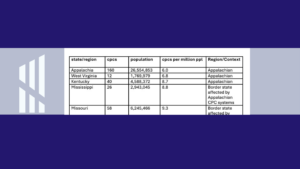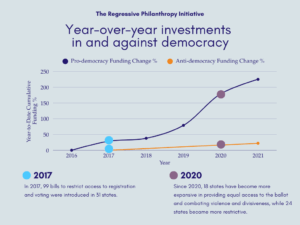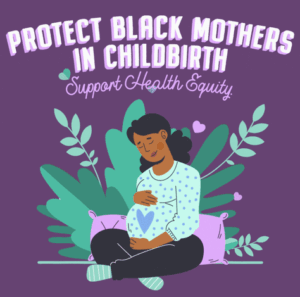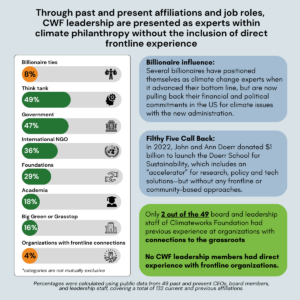As we are witnessing with this past month’s evacuations and resettlement of Afghans forced to leave their country and the thousands of vulnerable Haitians seeking safety in other countries due to multiple calamities in Haiti, refugees fleeing violence or persecution must employ remarkable courage and resourcefulness to survive a long and harrowing journey to safety. However, their contributions go far beyond their individual inspirational stories of escape and survival.
Unbound Philanthropy’s recently published report, “From Resettlement to Belonging: Opportunities for Refugee Leadership and Civic Participation,” highlights the remarkable impact that refugees are having as leaders across all different sectors of American society, and the power of investing in refugee leadership and civic participation programs. While we completed this report before the current evacuation of people from Afghanistan and the thousands of people from Haiti seeking refuge in the US, we see the strategies employed by Unbound grantees and other frontline organizers as useful tools for funders to consider when mobilizing their response to the moment.
Tapping Into the Leadership Potential in All of Us

Regardless of whether they held formal positions or titles, many refugees were leaders in their home countries or in refugee camps. Yet their leadership skills and lived experiences often go largely unnoticed and untapped when they arrive in their new communities.
Over the last several years, a growing number of organizations across the US, including resettlement agencies such as Church World Service, as well as state-based organizations such as Tennessee Immigrant and Refugee Rights Coalition and Florida Immigrant Coalition, are directly working to reverse that trend and build on refugees’ untapped potential. As a result of the leadership and civic engagement training programs that have emerged in these organizations, refugees are gaining and refining the necessary skills and confidence to speak out in their own voices.
Despite the trauma from which they are escaping, refugees are reinvigorating US communities and local democracy. They are advocating on issues that impact them as well as their neighbors. They are registering to vote and encouraging others to do so. They are starting businesses or social entrepreneurship projects. And they are running for office.
How We Can — and Should — Do More
The number and scale of refugee leadership and civic participation programs have grown tremendously over the last five years; yet this field holds significant potential for growth and is ripe for philanthropic investment as more refugees enter the US.
According to the National Committee for Responsive Philanthropy, barely 1% of all foundation funding is intended to benefit immigrants and refugees, and even less so at the local foundation level. And among this funding, an even smaller percentage goes towards strengthening the leadership and civic engagement of people resettling as refugees in the US.
So where can those interested in doing more start? Here are just some of the many different entry points for funders to consider to engage refugees:
- If you are a funder committed to leadership development, civic participation, organizing, and advocacy, integrate refugees into your portfolios.
- Funders who already work locally to support refugee services, investing in refugees’ leadership and civic engagement can be a natural extension of your grantmaking.
- For all funders: Engaging refugees can advance your broader portfolios, including health, education, economic justice, immigration, racial justice, or gender equity priorities.
- If you support women and girls; Muslim communities; Black, AAPI; or Latinx communities, make refugees an explicit part of your portfolio. The majority of refugees who came to the US over the past ten years were women and girls, and a significant portion–one-third–are Muslim. And increasingly, the Black community in the US is coming from different countries.
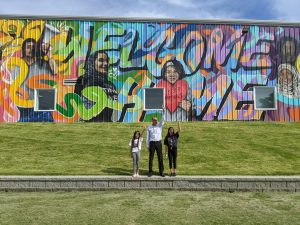
Supporting the leadership of refugees is part of Unbound’s broader commitment to investing in the leadership of people with lived experience of the immigration system, including our longtime support for the undocumented youth movement. We invite our colleagues to read our report, in which we lift up the voices of refugee leaders; and we invite our colleagues to actively seek out the stories of immigrant and refugee leaders in their own local communities.
If they do, they will soon come to know what we have seen time and time again: When refugees have the tools and opportunities to realize their potential, it cultivates a sense of belonging and agency over their lives—and contributes to positive changes that benefit all of us.
Taryn Higashi is the Executive Director of Unbound Philanthropy, a 2019 NCRP “Mover and Shaker” Impact Award winner for “Bold Peer Organizing.”
Those interested in learning more are invited to read Unbound Philanthropy’s report, From Resettlement to Belonging: Opportunities for Refugee Leadership and Civic Participation. Funders who would like to learn more about the strategies shared here or to connect with individual organizations leading this work, are encouraged to reach out to Ted Wang, US Program Director at Unbound Philanthropy.

